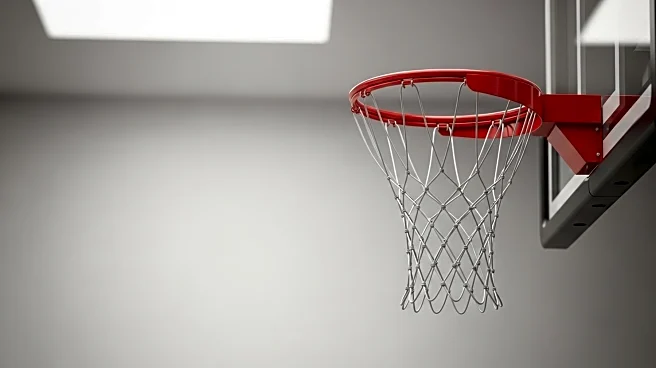What is the story about?
What's Happening?
WNBA Commissioner Cathy Engelbert has denied making a controversial comment regarding Caitlin Clark's earnings, which was alleged by Napheesa Collier. Collier claimed Engelbert said Clark should be grateful for making $16 million off the court due to the WNBA's platform. Engelbert refuted this, emphasizing Clark's impact on the league and her role in attracting millions of fans. Engelbert acknowledged Clark's injuries this season but praised her contributions. The controversy resurfaced when a social media user shared a past clip of Engelbert discussing Clark's potential earnings, highlighting her ability to earn up to $500,000 in WNBA wages and millions more through endorsements.
Why It's Important?
This situation highlights ongoing discussions about player compensation in women's sports, particularly in the WNBA. The league has faced scrutiny over salary disparities compared to the NBA, and this incident underscores the complexities of athlete earnings, including endorsements. The controversy could influence public perception of the WNBA's financial structure and its support for players. It also raises questions about the league's communication and transparency regarding player earnings, potentially impacting its relationship with athletes and fans.
What's Next?
The situation may prompt further discussions within the WNBA about player compensation and the league's role in supporting athletes' financial opportunities. If Collier provides evidence supporting her claim, it could lead to increased scrutiny of Engelbert's leadership and the league's policies. The WNBA might also face pressure to address salary disparities and improve transparency in its financial dealings with players. Stakeholders, including players, fans, and sponsors, may call for reforms to ensure fair compensation and support for athletes.
Beyond the Headlines
The controversy touches on broader issues of gender equality in sports, particularly regarding pay equity. It highlights the challenges female athletes face in achieving financial parity with their male counterparts. The situation also reflects the growing influence of social media in shaping public discourse and holding organizations accountable. As the WNBA continues to grow, addressing these issues could be crucial for its long-term success and reputation.
















